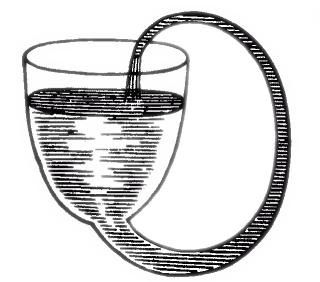Thomas Aquinas on Proofs for the Existence of God
Perpetual motion: a concept in which machine produces more energy than it consumes without the help of an external factor (such as wind, electricity, etc.). In theory, once a “cause” sets the machine in motion, it will continue in motion indefinitely as it continues to produce its own energy. A wonderful concept, but ultimately impossible to accomplish because of external factors.
Thomas Aquinas used this concept to “prove” the existence of God in his Summa Theologia in 1265AD. Essentially, Thomas observed that everything around him was constantly changing. In order for things to change, there had to be an external factor or “cause” that set off the course of change. For example, I set a match to dry wood and soon it catches on fire. The dry wood would never catch fire on its own without an external heat source. Ultimately, we have to come to a conclusion that there is indeed an “uncaused cause.” Thomas Aquinas put it this way:
Finally, a theological reading that I actually understood in this book!
Thomas Aquinas used this concept to “prove” the existence of God in his Summa Theologia in 1265AD. Essentially, Thomas observed that everything around him was constantly changing. In order for things to change, there had to be an external factor or “cause” that set off the course of change. For example, I set a match to dry wood and soon it catches on fire. The dry wood would never catch fire on its own without an external heat source. Ultimately, we have to come to a conclusion that there is indeed an “uncaused cause.” Thomas Aquinas put it this way:
We are therefore bound to arrive at a first cause of change which is not changed by anything, and everyone understands that this is God.Another concept Aquinas noted was that there is a governance to things. There are unintelligible things in motion with a specific purpose. Take for example this blog. The words you are reading did not arrange themselves into English nouns, verbs, & sentences with meaning of their own accord. No, they were put here by me with some design (and intelligence I might add). In the same way, because we can observe so many things that have a natural governance, we know that God must have put them in order.
Finally, a theological reading that I actually understood in this book!



0 comments: